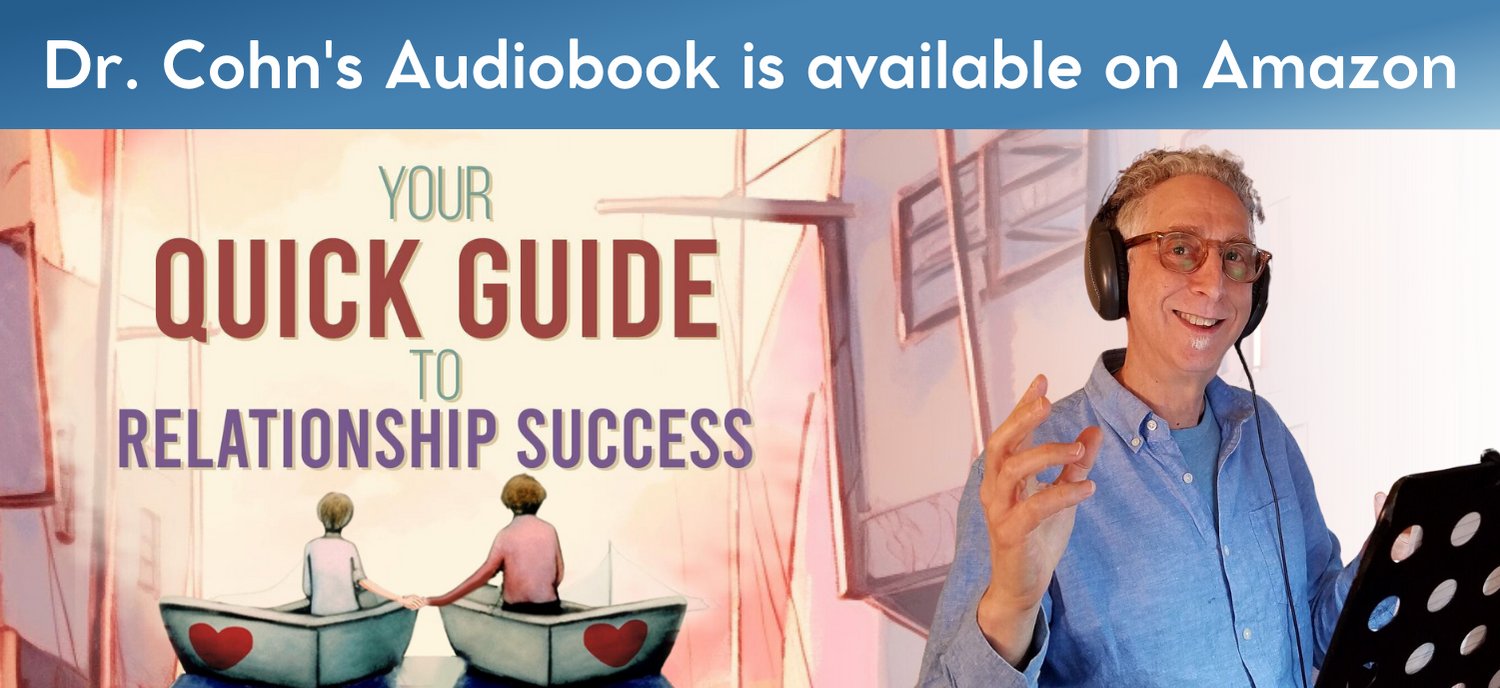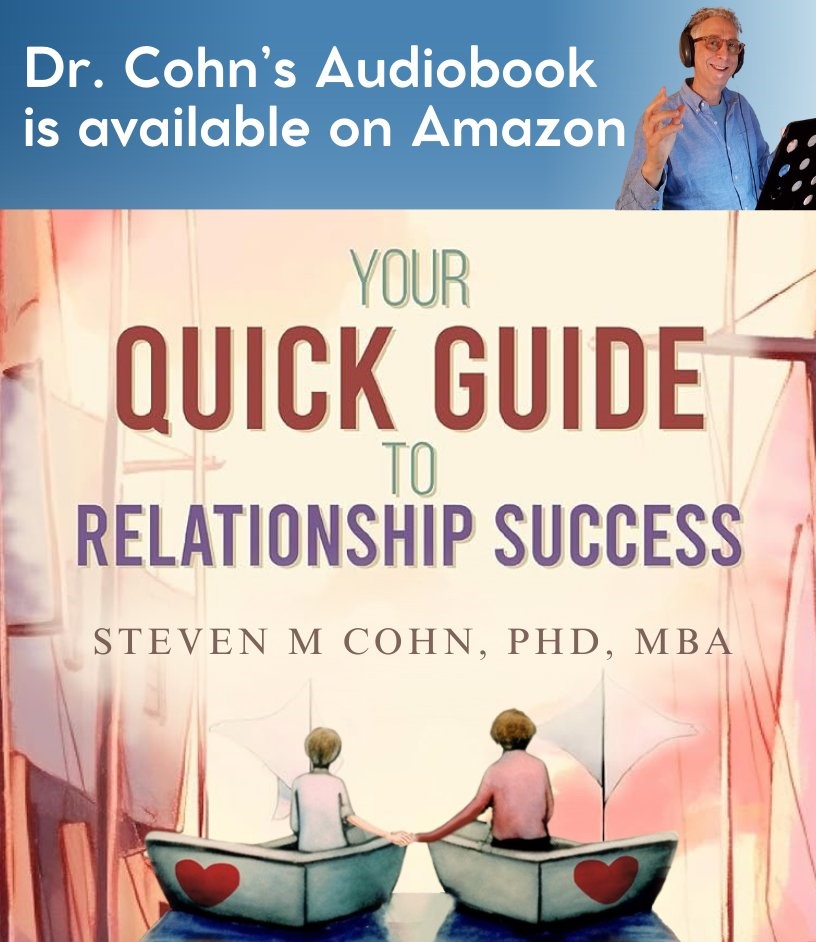- Home
- Sex Advice
- Advice About Sex
Advice About Sex
Teenagers and Sex
Considering advice about sex for your pre-teen? Would you prefer they learn from their peers in Bend or Ashland or Portland, on the Internet, on television or from you? By federal policy, public schools are often forbidden from teaching anything other than sexual abstinence, even though the American Academy of Pediatrics has recommended that teenagers receive not only counseling to postpone sexual activity but also information about contraception and access to over the counter emergency contraception without a prescription.(1)
Steven M Cohn, PhD, LMFT
Virtual Marriage and Couples Counseling
Serving Clients Throughout Oregon
503-282-8496

Giving Your Teen Advice About Sex
When discussing sex with a teenager, it's important for parents to create an open and supportive environment that encourages communication. Here are some key points to consider:
- Open Communication: Establish an open line of communication where your teenager feels comfortable discussing their thoughts and concerns about sex. Encourage them to ask questions and share their feelings without judgment.
- Educate About Anatomy and Reproduction: Ensure that your teenager has a basic understanding of human anatomy and reproduction. Explain how conception occurs and the changes that happen during puberty. Use accurate and age-appropriate information.
- Consent: Emphasize the importance of consent in any sexual activity. Make sure they understand that all parties involved must willingly agree and communicate their boundaries. Consent is ongoing and can be withdrawn at any time.
- Respect and Communication in Relationships: Teach your teenager about the importance of mutual respect and communication in relationships. Help them understand the difference between healthy and unhealthy relationships.
- Safe Sex Practices: Discuss the importance of safe sex to prevent unwanted pregnancies and protect against sexually transmitted infections (STIs). Explain the various methods of contraception and encourage responsible choices.
- Emotional Aspects of Sex: Talk about the emotional aspects of sex, including the importance of being ready both physically and emotionally. Emphasize the significance of making choices that align with their values and comfort level.
- Peer Pressure and Boundaries: Discuss peer pressure and how to establish and maintain personal boundaries. Teach them to say "no" when they feel uncomfortable and to respect the choices and boundaries of others.
- Media Literacy: Help your teenager critically analyze the portrayal of sex in media. Discuss how media often glamorizes or distorts relationships and sex, and highlight the difference between fiction and reality.
- Health and Hygiene: Cover topics related to sexual health, including regular check-ups, hygiene, and the importance of seeking medical advice if needed.
- Encourage Delaying Sexual Activity: While providing information about safe sex, also encourage your teenager to delay sexual activity until they feel ready and have a sense of responsibility.
Remember to approach these conversations with empathy, understanding, and a non-judgmental attitude. Keep in mind that these discussions should be ongoing, adapting to your teenager's maturity level and experiences. If you feel uncomfortable or unsure about addressing certain topics, consider seeking guidance from a healthcare professional or a sex education expert.

Teens are constantly being given mixed advice about sex from their peer role models and television, and studies have shown that American teens are much more likely to become pregnant during adolescence than those in other countries.(2) For this reason, it is of utmost importance that parents learn to talk to their children about sex, contraception, and the avoidance of sexually transmitted diseases before they become sexually active.
Only from you will your child receive true and accurate information. For example, did you know that many teenagers consider oral sex to be not truly sex? Their friends have told them oral sex is okay, and many teenagers feel that if there is no possibility of pregnancy, they are not having sex. Myths abound in the teen world. Do you remember when you were a teenager, and the common thought was that you couldn’t get pregnant the first time you had sex? That story is still prevalent today, and it is no more true today than it was 20 years ago.
A study looked at questions asked on two Internet bulletin boards over a two-month period. The questions most frequently asked by adolescents showed their concerns over their changing bodies, emotions, and social expectations.(3) Because these questions are personal and often embarrassing, your preteen may have trouble asking your advice on sex. You often must be the one to initiate the conversation with your child, even though it is not likely the easiest thing you have ever done.
Steven M. Cohn, PhD Portland Couples Counseling Center 1940 NE Broadway Portland, OR 97232 503-282-8496
It is vital that parents provide their preteens with high-quality advice about sex. One study found that the quality of advice, not the frequency, was important to reducing risky sexual behavior.(4) Without good quality advice, teens were more likely to have sex with multiple partners and to inconsistently use condoms. There have been ethnic differences found in the quality of advice about sex preteens receive from their parents. In particular, urban African-American and Latino girls are most likely to suffer the consequences of early sexual activity such as pregnancy and sexually-transmitted diseases.(5)
Talking to your teenager is never easy, particularly if you come
from a family that never talked to you about these important topics. But
as shown above, it is vital that you do so.
End Notes
(1)Hopkins Tanne, Janice. Teenagers Need Sex Education, Not Just Abstinence Advice. British Medical Journal 331(7509):129. July 16, 2005.
(2)Paluzzi, P. and Holmes, S. Providers, parents and communication: the keys to healthy teens and reducing teen pregnancy rates. Contraception 76(1):1-3, July, 2007.
(3)Suzuki, Lalita and Calzo, Jerel. The Search for Peer Advice in Cyberspace: An Examination of Online Teen Bulletin Boards about Health and Sexuality. Journal of Applied Developmental Psychology 25(6): 685-698, November-December, 2004.
(4)Wilson, Helen W. and Donenberg, Geri. Quality of parent
communication about sex and its relationship to risky sexual behavior
among youth in psychiatric care: a pilot study. Journal of Child
Psychology and Psychiatry 45(2): 387-395, 2004.
(5)O’Sullivan, Lucia F.; Meyer-Bahlburg, Heino; and Watkins, Beverly X.
Mother-Daughter Communication about Sex among Urban African-American
and Latino Families. Journal of Adolescent Research 16(3): 269-292,
2001.
As a Relationship Specialist, Steven Cohn, PhD, works with marriages and couples from all over Oregon including these cities, towns, and suburbs: Portland, West Linn, Dunthorpe, Pearl District, Bethany, West Hills, Irvington, Lake Oswego, Alameda, Bend, East Moreland, Salem, Ashland, and Medford.
And these Oregon zip codes: 97034, 97219, 97212, 94501, 94502, 97229, 97840, 97451, 97106, 97068, 97221, 97140, 97035, 97036
Share
Follow

Steven M Cohn, PhD is honored to have been featured on CNBC.com.

Steven M Cohn, PhD is pleased to have been featured on Koin 6 Television: "Boost In The Bedroom."

Steven M Cohn, PhD is pleased to have been featured on both KATU.com and KATU Channel 2 Television.

Steven M Cohn, PhD is pleased to have been featured on Oregon Live "Why Oregon's Latest Divorce Statistics May Be Divorced From Reality"

Steven M Cohn, PhD, MBA, LMFT has been named one of the top three marriage counselors in Portland, Oregon three years in a row by the non-profit organization Three Best Rated



